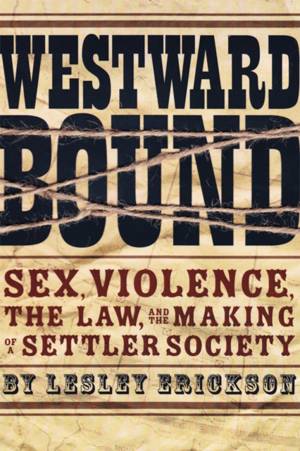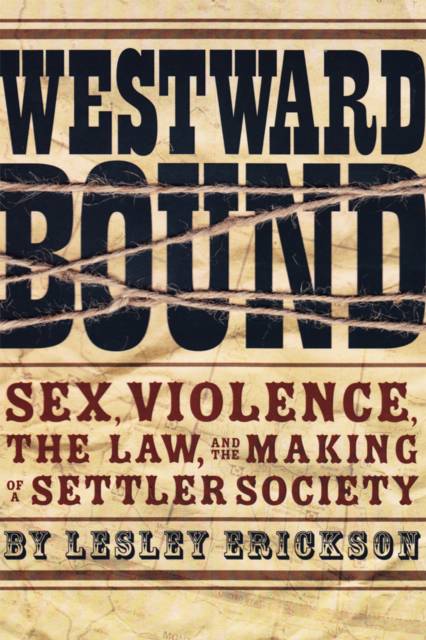
- Retrait gratuit dans votre magasin Club
- 7.000.000 titres dans notre catalogue
- Payer en toute sécurité
- Toujours un magasin près de chez vous
- Retrait gratuit dans votre magasin Club
- 7.000.0000 titres dans notre catalogue
- Payer en toute sécurité
- Toujours un magasin près de chez vous
Description
WestwardBound debunks the myth of Canada's peaceful West and the masculine conceptions of law and violence upon which it rests by shifting the focus from Mounties and whisky traders to criminal cases involving women between 1886 and 1940. Erickson's analysis of these cases shows that, rather than a desire to protect, official responses to the most intimate or violent acts betrayed an impulse to shore up the liberal order by maintaining boundaries between men and women, Native people and newcomers, and capital and labour. Victims and accused could only hope to harness entrenched ideas about masculinity, femininity, race, and class in their favour. This fascinating exploration of hegemony and resistance in key contact zones draws prairie Canada into larger debates about law, colonialism, and nation building.
Spécifications
Parties prenantes
- Auteur(s) :
- Editeur:
Contenu
- Nombre de pages :
- 360
- Langue:
- Anglais
- Collection :
Caractéristiques
- EAN:
- 9780774818599
- Date de parution :
- 01-01-12
- Format:
- Livre broché
- Format numérique:
- Trade paperback (VS)
- Dimensions :
- 150 mm x 226 mm
- Poids :
- 498 g







